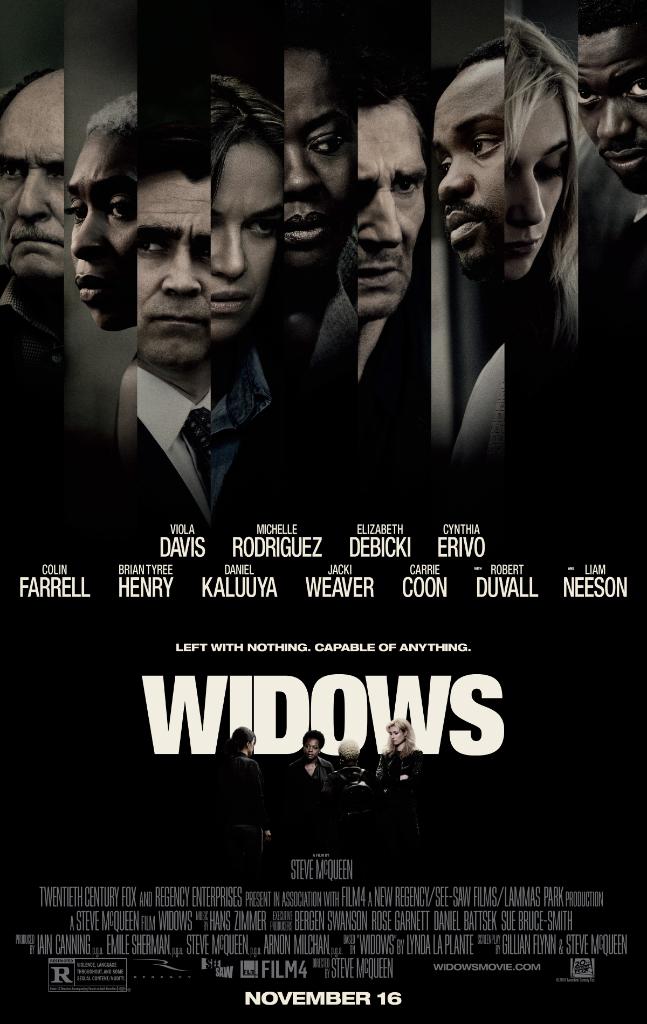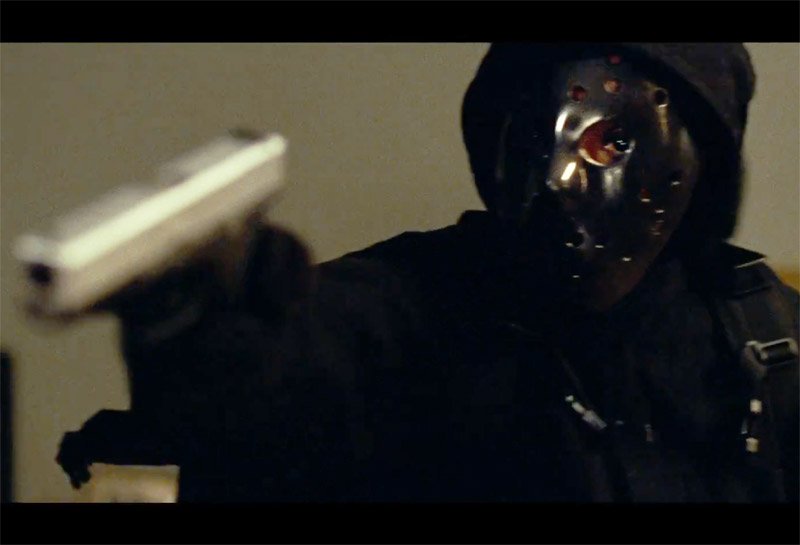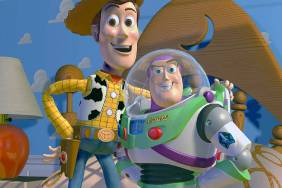Leave it up to Steve McQueen to revitalize the heist movie in such a way that it moves beyond the shoot-‘em-up, grand theft business to tell a story about Chicago’s dirty politics, social and economic corruption, and moral ambiguity through the eyes of its dubious main characters played by Viola Davis, Liam Neeson, Elizabeth Debicki, Michelle Rodriguez, Brian Tyree Henry, Daniel Kaluuya, Cynthia Erivo, and Colin Farrell. In Widows, inspired by the 1980s British series of the same name, nothing and no one is exactly what you expect them to be and when you see the film you’ll know exactly why that is.
But even more than the characters’ duplicity and the increasingly seedy narrative is the central relationship between three very different women—Veronica, Alice, and Linda (Davis, Debicki, and Rodriguez)—who are only connected by the fact that their criminal husbands were murdered together during a job gone bad, leaving them to salvage the remains of their blood money while having to contend with the foes they left behind. Cue Jamal and Jatemme Manning (Henry and Kaluuya), brothers playing the game of filthy politics, and Jack Mulligan (Farrell), their deep-seated opponent.
Having been seen only as the women who stood behind and not beside their powerful husbands, Veronica, Linda, and Alice, and later Belle (Erivo), a single mom, are determined to prove to themselves and the world around them that they too have the balls to pull off a multilayered heist just as well as any man—even with the odds stacked against them.
Women stepping into their self-worth and owning their power is something that immediately struck Davis about the story, which she related to her own life and career. “It’s a basic human need to fight for your worth. It’s in every single character that I’ve ever played,” she said. “We’re always hustling for our worth, bartering for our worth. And absolutely, I think it’s in every single character [in this movie]. That’s probably why they performed this heist. No one thinks they’re worthy of [pulling it off].”
Though Neeson’s character Harry, Veronica’s husband, isn’t among her badass posse, their relationship—and the grief they share over losing their son—is certainly a motivating factor for Veronica. Because the tragedy shifts the dynamics of their relationship, as we learn through flashback scenes, Harry too struggles to maintain a sense of identity and self-worth that inform his character. This is something that particularly resonated with Neeson. “There’s a great line in Arthur Miller’s Death of a Salesman when Willy Loman dies, and his wife says, ‘Attention must be paid.’ That’s always stuck with me,” he stated.
As audiences will learn, however, there’s a lot hidden beneath the surface of Veronica and Harry’s relationship. And they’re not the only ones living shady lives. In fact, each of the characters does their own share of dirt. So, who’s actually the villain in the film? “I think a lot of people go for Jamal and Jatemme,” Erivo said. “And it’s always on the tip of my tongue to ask, “Why does everyone think that they’re bad?’ I think they’re victims of circumstance who are trying to do right by the people.”
Rodriguez more definitively stated, “It’s the aldermen [Jack and his father Tom, played by Robert Duvall]. They’re keeping the ghetto impoverished when it should be progressing, and they’re doing that by stealing money that should be going to those neighbors. So yeah, they’re the bad guys.”
While Henry revels in playing a character that some may perceive as the bad guy, he counters it by suggesting that it’s the warped system of race and class in Chicago that is the ultimate villain. “The politics is the villain, honestly,” he said. “The segregation [of Chicago], that to me is the villain. I love that people view me as the bad guy. But at the end of the day, you have to figure out why you feel that way.” Rodriguez added, “I love that the lines are being blurred like that. Because everything should be questioned.”
The Windy City’s complicated politics was the very thing that inspired McQueen, who co-wrote the film with Gillian Flynn, to use it as the setting to tell a more pointed story that expanded on the original narrative. “Chicago politically and with crime, religion, race—it’s all here,” he stated. “Within 15 minutes from where we’re sitting, we can be in one of the poorest parts of America, and vice versa one of the richest parts of America. I didn’t want to put the blinkers on. I wanted to have a clear, and present view of the foundation where I was putting my heist picture in.”
Similarly, when it came to the female-dominated cast and McQueen bringing Chicago native Flynn on board as his writing partner, that too was intentional. “I could not make this picture without the four women that I cast, but also Flynn, who’s an incredible writer,” he said. “I have an affiliation to this story because of who I am. When I first saw the [original series], I identified with these women at 13 years old as a black child growing up in Britain. So, the fact that I could bring Gillian on board and we could write this narrative together was a huge privilege.
Widows is in theaters November 16.
Widows
-
Widows

Widows Day 10_135.dng
-
WIDOWS

DF-01120_1123_1134_R2_COMP - Viola Davis and Cynthia Erivo star in Twentieth Century Fox’s WIDOWS. Photo Credit: Merrick Morton.
-
WIDOWS

DF-04550_R2 - Michelle Rodriguez and Elizabeth Debicki star in Twentieth Century Fox’s WIDOWS. Photo Credit: Suzanne Tenner.
-
Widows

Widows Day 11_80.dng
-
Widows

-
Widows

Daniel Kaluuya and Brian Tyree Henry in Twentieth Century Fox’s WIDOWS. Photo Credit: Courtesy Twentieth Century Fox.
-
Widows

Liam Neeson and Viola Davis in Twentieth Century Fox’s WIDOWS. Photo Credit: Courtesy Twentieth Century Fox.
-
Widows

L-R: Michelle Rodriguez, Viola Davis, and Elizabeth Debicki star in Twentieth Century Fox’s WIDOWS. Photo Credit: Courtesy Twentieth Century Fox.
-
Widows

Viola Davis stars in Twentieth Century Fox’s WIDOWS. Photo Credit: Courtesy Twentieth Century Fox.
-
Widows

L-R: Elizabeth Debicki (back to camera), Cynthia Erivo, Viola Davis (back to camera), and Michelle Rodriguez star in Twentieth Century Fox’s WIDOWS. Photo Credit: Courtesy Twentieth Century Fox.
-
Widows

Robert Duvall in Twentieth Century Fox’s WIDOWS. Photo Credit: Courtesy Twentieth Century Fox.
-
Widows

Colin Farrell in Twentieth Century Fox’s WIDOWS. Photo Credit: Courtesy Twentieth Century Fox.










